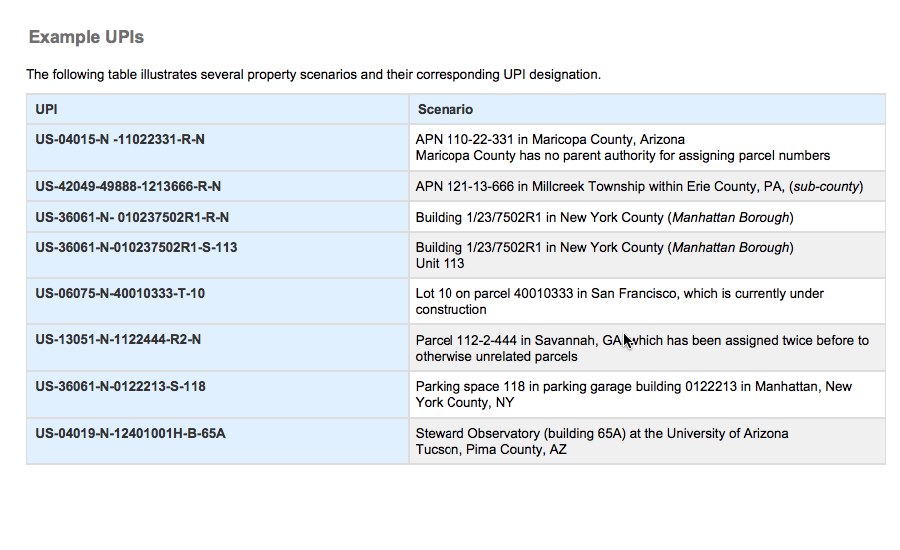
5 Things Realtors Should Know About UPI
Universal Property Number or UPI is a new RESO standard for real estate businesses. It was released in 2017 with the aim of furthering data consolidation in the real estate industry; this time on a global level.
Mark Besset, who is the lead member of a workgroup assigned to UPI, believes it is a work in progress, and soon properties all around the world will benefit from this ID referencing system.
Universal Property Identifier is a fresh standard and there is so much to say about it, but here are five things you should know about UPI as a real estate professional:
1. It Works A Lot Like ISBN
We all know ISBN. It is the international book number which is printed on the back of your hard copies along with a barcode. UPI is supposed to do the same for properties and their features. The difference is in the fact that UPI is still not as widespread as ISBN and real estate business functions differently from the publication business.
Further, ISBN is a digit-only ID while UPI includes letters as well.
2. UPI Follows an Alphanumeric Standard
Given that UPI is intended to be a reference ID, its design is based on the most important feature, location!
The ID is formed using the following pattern, and it will include information that is currently available as standards:
{COUNTRY}-{SUB-COUNTRY}-{SUB-COUNTY}-{PROPTYPE}-{LOCAL-ID}-{SUB-PROPERTY-ID}
For example:
 3. Not All Organizations Can Generate UPI
3. Not All Organizations Can Generate UPI
All organizations can recognize and use UPI but may not be able to generate one. According to the documentation by RESO:
“Organizations that maintain detailed public records history or otherwise have access to public records can readily create the UPI. Organizations that do not maintain this information will be able to obtain the UPI from their records vendor.”
4. UPI is Not Supposed to Carry Information
UPI is intended to function as a reference ID. Some might argue that it will eventually contain information but this is not the case for its design. The ultimate goal is for each property to have a globally recognizable ID so real estate systems around the world can deal with properties in a more integrated fashion.
5. UPI is Not Case Sensitive
A universal property identifier may include letters and numbers that are separated by dashes. Speaking of letters, there is always a question on whether or not it is case sensitive. We don’t need to worry too much though. Although UPIs are usually written in capital letters, they are not case sensitive.
What’s Next?
RESO standards have revolutionized real estate technology in the last 20 years. From Data Dictionary to RESO API and now UPI, RESO is always trying to make sure the real estate business runs smoothly. As a smart real estate professional, it is critical to stay updated with the latest technologies and use them to stand out.


Sorry, the comment form is closed at this time.